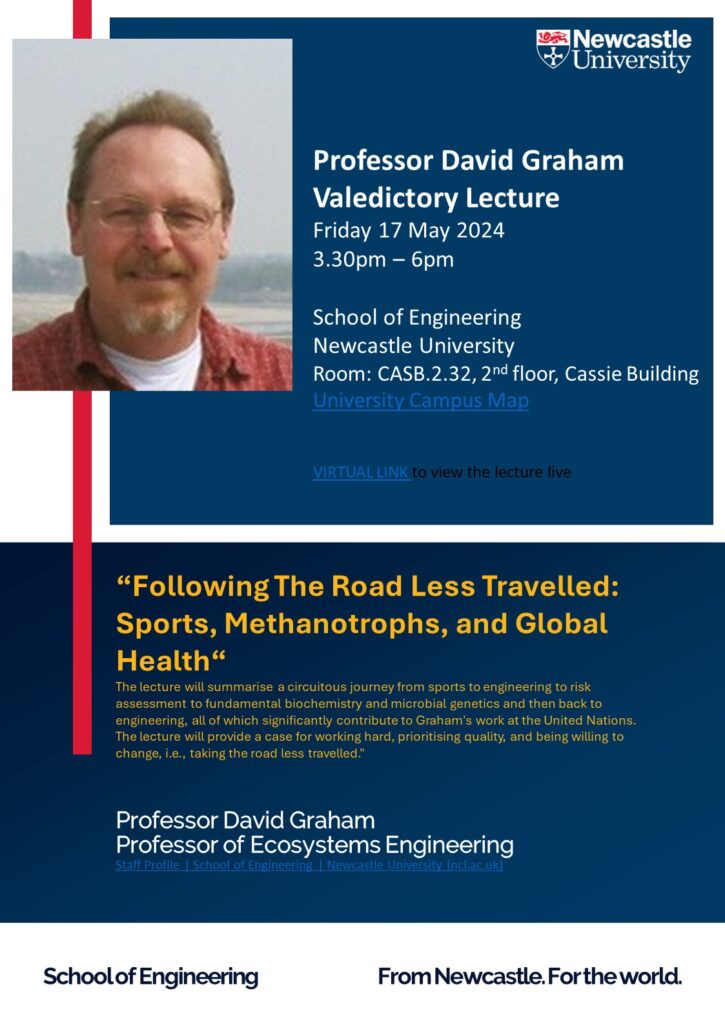
This post is to announce I (David Graham) have retired from my position of Professor of Ecosystems Engineering at Newcastle University. However, I am happy to say that I am not fully retiring nor fully leaving Newcastle University. I will be working less, now as an Emeritus Professor, but I am also following a few exciting new roads.
Henceforth, I will be a Senior Research Fellow (on a research-only contract) at Durham University in the Department of Biology with my close colleague, Marcos Quintela Baluja, and a Visiting Professor at the Chinese Academy of Sciences, Institute of Urban Environment to expand my long-term collaboration with Prof hashtag#YongguanZhu and his tremendous team.
I also will continue my work at the United Nations, including work in The Quadripartite Technical Group on Integrated Surveillance on Antimicrobial Use and Resistance, and will teach and support students at the Indian Institute of Technology, Delhi and IIT, Hyderbad.
For those who in the Newcastle area, I will be providing a Valedictory address on May 17 at 15:30 UK or if you want you can join online here. We have tried to invite anyone who might have interest, but lost many emails and hopefully some will see this message below.
